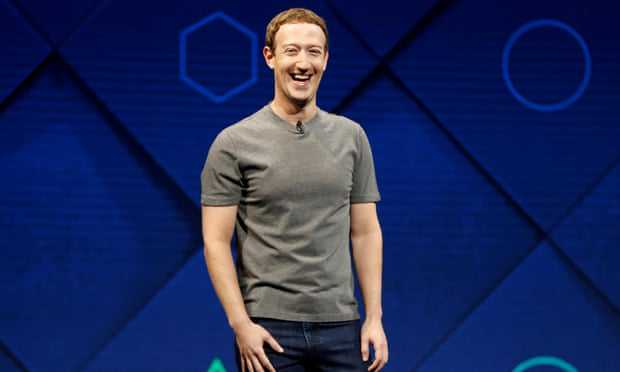As the controversy mounts, Facebook still seems to click

Image collected
Facebook is expected to report its second most profitable quarter ever on Wednesday, even in the wake of a $5bn (£4bn) fine and an unprecedented level of scrutiny over its plans to launch a new global currency.
While regulatory struggles and digital money plans have hogged the spotlight in recent weeks, investors and analysts remain convinced that the social media juggernaut can continue to expand.
Facebook’s share price has risen by more than 50% this year, more than double the rate of increase on the broader Nasdaq composite index. Investors have shown a remarkable stomach for unpalatable news: in April they shrugged off the $5bn hit from the US Federal Trade Commission over privacy violations. Shares are about 8% above their level on 16 March 2018, on the eve of Observer revelations that Cambridge Analytica harvested millions of user profiles to target users with political advertisements.
Neither does the company yet appear to have been affected by the backlash against Libra, the digital currency it hopes to launch across the world. Regulators and politicians – from US Democratic presidential candidates to the Bank of England’s Mark Carney – have promised to make Libra one of the most heavily scrutinised technology launches in history.
Mark Zuckerberg, who founded the firm 15 years ago, appears to be so concerned by the wave of controversies that he launched a set of hour-plus podcasts to discuss topics such as free speech, democracy and the law.
Yet despite setbacks, investors are expected to focus on the more prosaic realities of user growth and revenues when Facebook reveals results after the market closes on Wednesday.
The California-headquartered company is expected to reveal profits of $5.4bn for the three months to June, according to an average of estimates collected by S&P Global Market Intelligence. If the analysts are correct, that would represent Facebook’s second-best quarter on record, beaten only by the bumper $6.88bn profits made in the final three months of 2018.
In those results, Facebook’s rising revenues – up by 30% year on year to $16.6bn – mollified investors who had been spooked by research suggesting that US and European markets might be reaching saturation point. Facebook estimates it has two billion daily active users of at least one of its “family” of apps – Facebook, Instagram, Messenger and WhatsApp.
However much sound and fury it faces in the political sphere, Facebook’s potential to keep on reaching new users in emerging markets such as India has pushed its valuation to above $570bn in recent days – back towards the high-water mark of $624bn hit a year ago. Analysts will be on the lookout for growth in revenue per user in markets that are still expanding at a rapid clip.
It may not all be plain sailing. The potential for a jolt was underlined last week by Netflix, after the streaming service, also listed with Facebook on Nasdaq, fell short of its own forecasts for new subscribers, according to Alex DeGroote, an independent media analyst.
“Investors may now just be thinking, ‘We’ve had an extremely good ride; let’s press the button [to sell] and take stock’,” he said.
Facebook executives had guided the market to understand 2019 as a transition year, with lower revenues and higher spending as the company reorients towards more visual advertising formats such as its Snapchat-esque “Stories” features and spends more on human editors to combat fake news.
“They [tech firms] do hit speed bumps, and sometimes it can be quite abrupt,” DeGroote said.
Since you’re here…
… we have a small favour to ask. More people are reading and supporting The Guardian’s independent, investigative journalism than ever before. And unlike many news organisations, we have chosen an approach that allows us to keep our journalism accessible to all, regardless of where they live or what they can afford. But we need your ongoing support to keep working as we do.
The Guardian will engage with the most critical issues of our time – from the escalating climate catastrophe to widespread inequality to the influence of big tech on our lives. At a time when factual information is a necessity, we believe that each of us, around the world, deserves access to accurate reporting with integrity at its heart.
Our editorial independence means we set our own agenda and voice our own opinions. Guardian journalism is free from commercial and political bias and not influenced by billionaire owners or shareholders. This means we can give a voice to those less heard, explore where others turn away, and rigorously challenge those in power.
We need your support to keep delivering quality journalism, to maintain our openness and to protect our precious independence. Every reader contribution, big or small, is so valuable.
Source: https://www.theguardian.com
Tags :
Previous Story
- Facebook faces second day of Libra opposition on...
- Facebook tells Congress it shouldn’t be broken up...
- Maxine Waters has a plan to ban Libra...
- Facebook to Pay $5 Billion Fine for Privacy...
- Facebook Just Got Some Incredibly Good News, and...
- Facebook’s Digital Money Could Mean Fabulous Wealth. Or...
- Facebook Pledges to Move Dumb and Eat Shit
- Problems SMEs face in Bangladesh